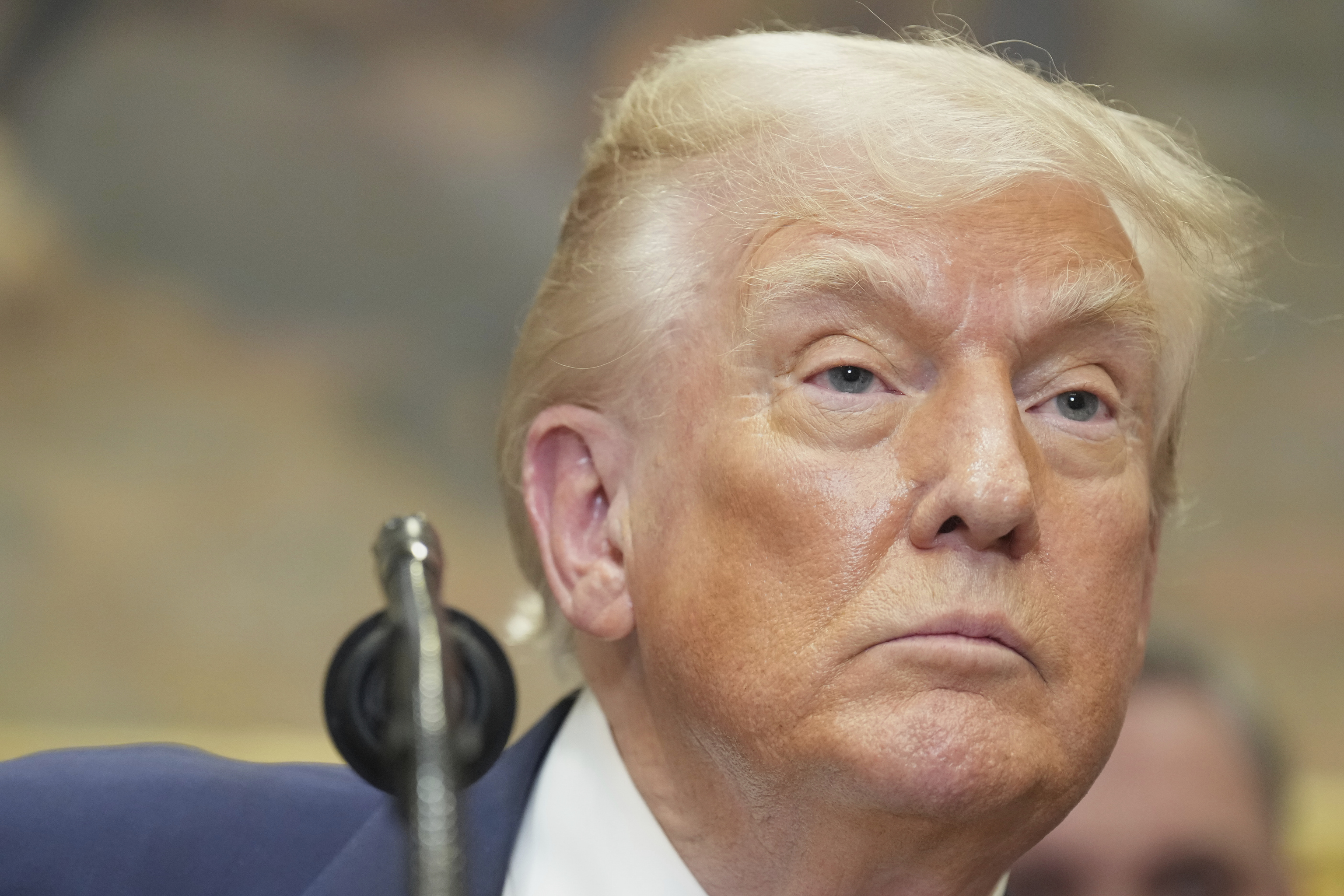U.S. President Donald Trump signed a decree on Thursday imposing higher tariffs on dozens of countries to restructure global trade in favor of the United States. Neighbors Canada and Mexico are under threat. China, on the other hand, is not included in the list, pending a bilateral agreement, while recently announced agreements with the EU come into effect.
The new customs duties, one of the favorite words of the Republican president known for his mercantilist view of international relations, will not take effect this Friday as initially planned, but within six days.
The last-minute postponement has not calmed global markets, which, after the initial blow suffered in April with Trump's "Liberation Day" announcement, had recovered, hoping that the threat of a global trade war was fading. Today, from Asia to Wall Street's futures markets, the color of the markets is red with sales.
Last Sunday, Trump agreed with European Commission President Ursula von der Leyen on non-reciprocal general tariffs of 15%, which Brussels summarized as the least bad of the agreements because it ended the uncertainty of a trade war. Criticisms of the pact and von der Leyen herself by countries and business and industrial sectors have been harsh, with intense activity in recent days to try to soften the economic impact of the agreement by extending negotiations.
Products like wine, which France has tried to place in a "zero to zero" tariff trade model, benefiting Spanish producers who have the U.S. as one of their main export markets, will not receive that exemption, as Brussels announced yesterday, and therefore their tariffs will be 15%.
The announced tariff readjustment placed the levy above 30% for several countries with which no agreement has been reached, such as Switzerland, Serbia, or Myanmar (Burma).
This delay aims to give customs time to prepare, a senior U.S. official informed journalists.
"Restructuring global trade for the benefit of American workers," wrote the White House in capital letters and bold in one of the documents announcing the new levies.
It aims to "further address the growing annual U.S. goods trade deficit" and "protect the U.S. from foreign threats to national security and the economy," despite many economists fearing an inflation increase that consumers will bear.
The new customs duties range from 10% to 41%, with the highest being for Syria. India is subject to 25% and Canada also takes a hit, increasing from 25% to 35%, except for products protected by the United States-Mexico-Canada Agreement (USMCA).
Several European economies follow, such as Switzerland, Serbia, or Bosnia-Herzegovina, with tariffs of 39%, 35%, and 30% respectively, due to the lack of a trade agreement.
Particularly noteworthy is Switzerland, to whom the U.S. president imposed the highest increase of all countries on Thursday, as on April 2, the levy on its imports was limited to 31%.
Regarding its northern partner, "Canada has not cooperated in stopping the steady flow of fentanyl and other illicit drugs, and has retaliated against the United States," lamented the White House in a document.
"Mexican cartels are increasingly operating fentanyl and nitazene synthesis labs in Canada," it adds about two synthetic opioids that concern the United States.
The European Union (EU), Japan, and South Korea, some of the few partners who managed to renegotiate tariffs during the truce announced in April and postponed in July, will be subject to 15%, like most countries. The United Kingdom, Vietnam, Indonesia, and the Philippines also reached agreements, still preliminary.
Washington increased surcharges from 10% to 15% for Costa Rica, Bolivia, and Ecuador and kept unchanged those planned in April for Venezuela (15%) and Nicaragua (18%).
Brazil is listed with 10%, but only until August 6. On Wednesday, the Trump administration announced that this universal minimum tariff would add 40 percentage points, equivalent to 50%, mainly due to the trial against the far-right former president Jair Bolsonaro, accused of a coup attempt.
This Thursday, after speaking with his Mexican counterpart Claudia Sheinbaum, Trump showed leniency towards his southern neighbor and granted a 90-day extension with the aim "to sign" an agreement "within that period, or even longer." In the meantime, Mexico remains subject to 25%, except for goods included in the USMCA.
"The best possible agreement was reached" compared to other nations, Sheinbaum stated at a press conference.
Mexico, which faced additional customs tariffs of 30%, "agreed to immediately eliminate its numerous non-tariff trade barriers, which were many," Trump added.
Until now, most countries faced the universal minimum tariff of 10% imposed in April and those applied to certain products, such as 50% on aluminum and steel or 25% on automobiles. Starting Friday, there will also be a 50% surcharge on products made with copper.
The impact of tariffs worries economists. They consider them a burden on inflation, which rose to 2.6% in June, according to the PCE index published on Thursday, and on U.S. growth, expected to be below 1% in the second half of the year.
As a result, the Federal Reserve (Fed) kept its rates unchanged, much to Trump's dismay.
The use of tariffs as a means of pressure to achieve trade agreements favorable to the United States ended up in court.
This Thursday, a hearing was held in a Washington appeals court to determine if Trump has exceeded his constitutional powers by imposing these surcharges.
The White House has warned that it will appeal to the Supreme Court if the ruling is unfavorable.
